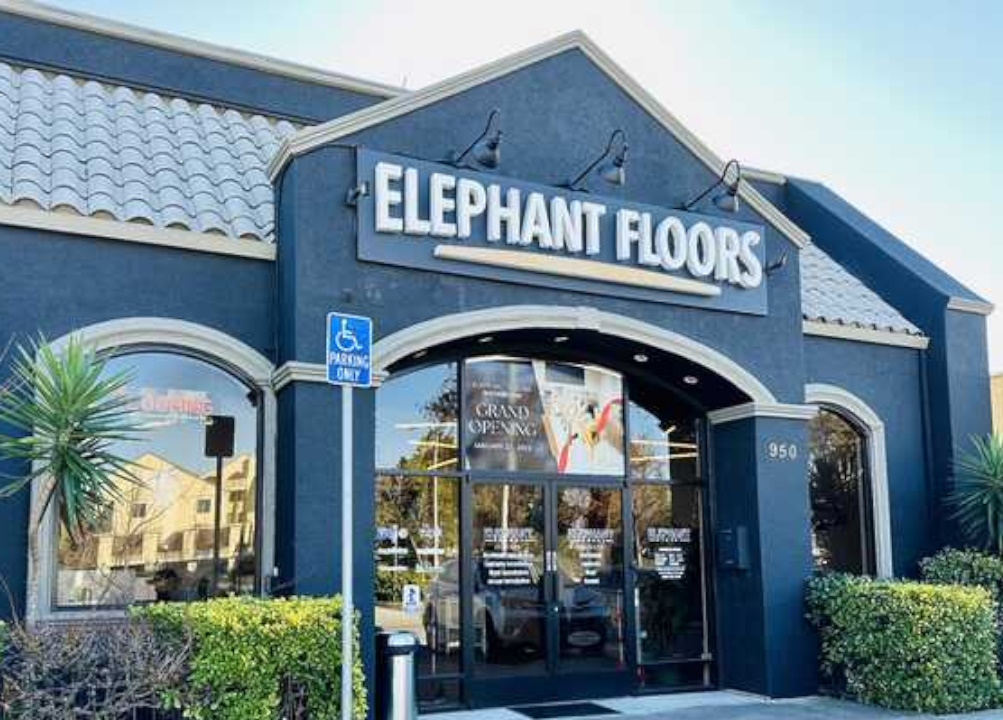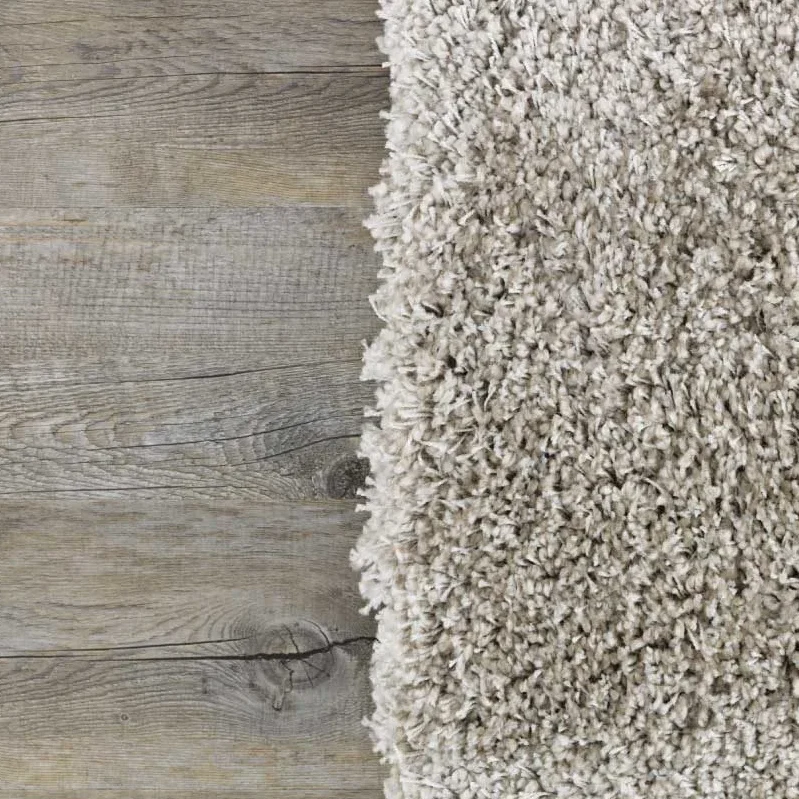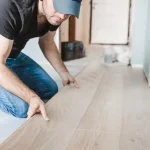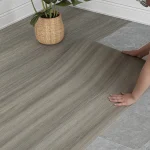- September 29, 2024
Discover the key differences between carpet vs. luxury vinyl flooring to make a perfect decision for your home.
Pros | Cons | |
Carpet | Comfortable, | Requiring deep care, |
Vinyl | Durable, | Expensive, |
In the 21st century, we have far more options for flooring than only carpets. Choosing the right flooring is a vital decision. It affects the look and feel of your living area while making the first steps. The carpet and luxury vinyl flooring are the most widespread options. However, people must overcome the “carpet vs. vinyl” battle while deciding which one to choose. Each has unique pros and cons. Consequently, carpet vs. vinyl remains one of the trickiest decisions.
This guide will help you:
- Examine the differences between carpet and vinyl flooring.
- Make a better decision for your future flooring based on your needs, preferences, and finances.
What are the main pros and cons of carpet vs. vinyl flooring?
The earliest carpets were rugs made from sheep wool or goat hair. They appeared in the Middle East two to three thousand years before Christ. Carpet flooring has been a home staple for decades due to its warmth, comfort, and versatility. This option needs a thorough explanation to win the battle of carpet vs. vinyl.
Before luxury vinyl flooring became popular, carpet was the top choice for commercial spaces. Today, luxury vinyl flooring is replacing carpets in many places. It is especially true in corporate offices, healthcare facilities, and hotels. But this doesn’t eliminate carpet usage and make the vinyl flooring win in the battle of carpet vs. vinyl.
Vinyl was discovered by a French physician in the 19th century. It was introduced at the 1933 “Century of Progress” exhibition in Chicago, USA. Luxury vinyl flooring (LVF) is a modern and versatile option that combines durability and aesthetic appeal. But LVF needs to overcome the same carpet vs. vinyl battle, too.
Read our other comparisons:
Pros and Cons of Carpet Flooring
Carpet is a type of fiber, like nylon, polyester, or wool. These are tufted or woven into a backing material. It comes in many styles, textures, and colors. These let homeowners create different looks and moods. Common carpet types include plush, Berber, frieze, and loop pile. Each type of carpet has its peculiar blend of aesthetics.
The main pros and cons of carpet flooring are:
- Convenience: The carpet is soft and cushioned. It makes for a comfy, fatigue-reducing surface. It makes it great for bedrooms and living rooms. It is best for areas where you want to relax and feel at home.
- Insulation: The carpet is the best option for insulation. It keeps heat in during winter, making rooms warmer. It contributes to lower heating costs and a more energy-efficient home.
- Noise Reduction: The carpet absorbs sound and cuts noise transmission. The loud noises of your neighbors will be reduced due to the carpet. So, it is a good option for multi-story homes or apartments where noise is a concern. It helps to create a quieter and more peaceful environment.
- Variety: The carpet has many colors, patterns, and textures. It lets homeowners express their style and match their décor. Whether you prefer a neutral tone or a bold pattern, there is a carpet style to match your taste. Besides you can even order a carpet and have an exquisite one according to your wishes..
- Affordability: Carpet is usually cheaper to buy and install than other flooring options. It is a cost-effective choice for budget-conscious homeowners.
Cons of Carpet Flooring
- Care: The carpet requires regular maintenance to keep it looking its best. It includes frequent vacuuming and deep cleaning to remove dirt and debris, stains, and odors. Carpets can collect dust, allergens, and pet dander. This can be problematic for allergy sufferers.
- Durability: While carpet is generally durable, it can show signs of wear and tear over time, particularly in high-traffic areas. The fibers can become matted, and stains may become permanent if not addressed promptly.
- Moisture Sensitivity: The carpet isn’t suitable for moist areas, like bathrooms or basements. It can absorb spills and humidity, leading to mold and mildew. If moisture is a concern, it is essential to solve the problem promptly to prevent damage.
- Odor Retention: The carpet can retain odors from spills, pets, or smoking, which may be challenging to remove. Regular cleaning and proper ventilation can help lessen this issue, but some odors may persist despite your efforts.
Pros and Cons of Luxury Vinyl Flooring
LVF aims to look like natural materials, like hardwood or stone. It is a practical, low-cost alternative to them. It comes in two primary forms: luxury vinyl planks and tiles, each offering unique benefits. Luxury vinyl planks have planks that imitate wood flooring. It aims to replicate hardwood floors. It has a warm, natural look. It is very durable and low maintenance. Luxury vinyl tiles, in contrast, mimic stone or ceramic tile. It looks elegant. Luxury vinyl tiles are less likely to break and are softer underfoot than real tiles.
Pros of Luxury Vinyl Flooring
- Durability: LVF is renowned for its durability and resilience. It is resistant to scratches, dents, and stains, making it suitable for high-traffic areas and homes with pets and children. The top layer of LVF often features a protective coating that helps maintain its appearance over time.
- Water Resistance: Many luxury vinyl floors are waterproof or highly water-resistant. They are ideal for moisture-prone areas like kitchens, bathrooms, and basements. This feature helps prevent damage from spills and humidity, reducing the risk of mold and mildew growth.
- Low Maintenance: Luxury vinyl flooring is easy to maintain and clean. Regular sweeping and occasional mopping is usually sufficient to keep it looking fresh and new. Unlike carpets, LVF does not require frequent deep cleaning or special treatments.
- Variety and Realism: LVF has many designs, colors, and textures. It gives you the look of natural materials at a low cost. Whether you prefer the warmth of hardwood or the elegance of stone, LVF offers realistic and visually appealing options.
- Convenience: LVF is not as soft as carpet. But it is comfortable underfoot, especially with an underlayment. The cushioning layer helps absorb impact and reduce noise, making a pleasant walking surface.
Cons of Luxury Vinyl Flooring
- Initial Cost: Luxury vinyl flooring can cost more than carpet, especially for premium products. However, this cost is often offset by the durability and low maintenance requirements of LVF.
- Indentation: Heavy furniture or sharp objects can sometimes cause indentations in LVF. To prevent this, it is essential to use furniture pads and avoid dragging heavy items across the surface.
- Environmental Impact: Some luxury vinyl flooring is made from PVC. This raises concerns about sustainability and indoor air quality. While LVF is a practical flooring choice, it is important to consider the environmental impact of the materials used.
Carpet vs. Vinyl Battle
While learning which one wins in the carpet vs. vinyl battle, we could number many factors. But here we bring some crucial ones that you should consider when dealing with the battle of carpet vs. vinyl.
- Look and style.
- Durability and stability.
- Cost.
- Sound.
Look & Style | Carpet vs Vinyl Flooring
Although luxury vinyl is softer than most hard flooring surfaces, you can enhance its comfort with area rugs.
Carpet Flooring
- Extensive design options with limitations in patterns or colors.
- It is popular in hospitality and corporate settings for its comfort and aesthetic appeal.
Vinyl Flooring
- Variety of materials like wood, stone, and concrete.
- Highly customizable and versatile in design.
Durability & Stability of Carpet vs Vinyl Flooring
When assessing durability and stability, ease of cleaning is key. Carpet traps dirt and dust, but it can stain permanently. Innovations like removable carpet tiles have not solved this. In contrast, luxury vinyl flooring is easy to clean. Its non-porous surface, wear layer, and polyurethane topcoat resist moisture, stains, and scratches.
Carpet Flooring
- Difficult to clean and maintain, especially with spills.
- Innovations like carpet tiles reduce maintenance. Carpets still wear in high-traffic areas.
Vinyl Flooring
- Easy to clean, disinfect, and maintain.
- Non-porous and naturally antimicrobial, with high durability and stain resistance.
Cost of Carpet vs. Vinyl Flooring
Unlike hardwood flooring cost, both carpet and vinyl are way more affordable and thus their comparison is more relevant. Carpet and vinyl flooring have some similarities and notable differences. There is no one price for all carpet and vinyl options. Let’s look at the general prices for carpet and vinyl flooring. Actual costs can vary based on quality, brand, and installation complexity.
For carpets, prices range from $1 to $4 per square foot for low-end options, $4 to $7 for mid-range choices, and $7 to $12+ for high-end varieties. Additional costs include padding, which ranges from $0.50 to $1 per square foot, and installation, which can cost $1 to $3 per square foot.
In contrast, vinyl flooring is generally less expensive, with basic vinyl (sheet or standard plank) priced at $1 to $3 per square foot, mid-range luxury vinyl planks (LVP) at $3 to $5, and high-end options like premium LVP or vinyl tiles ranging from $5 to $7+ per square foot. Additional costs for vinyl include underlayment, if needed, at $0.50 to $1 per square foot, and installation, which also ranges from $1 to $3 per square foot.
Thus, carpet typically ranges from $3 to $4 per square foot, with installation costs pushing the total from $4.50 to $5.50 per square foot. Luxury vinyl, on the other hand, costs $2 to $5 per square foot, including installation, for commercial-grade products.
Carpet Flooring
- Lower prices, but higher expenses when considering installation and upkeep.
Vinyl Flooring
- Comparable initial costs to carpet, but less expensive over the long term due to lower maintenance and durability.
Sound of Carpet vs. Vinyl Flooring
Noise reduction is an important consideration when comparing carpet and vinyl flooring. Carpet has a reputation for absorbing sound and reducing noise transmission. Luxury vinyl flooring provides sound insulation when selected with careful consideration. Options like 5mm loose lay vinyl or rigid core click products with acoustical backing are great for sound reduction.
Carpet Flooring
- Excellent for reducing noise and improving acoustics.
Vinyl Flooring
- You can achieve comparable noise reduction with the perfect construction and underlayment.
Still can’t decide on carpet vs. vinyl flooring?
Choosing between carpet and vinyl flooring requires weighing many factors. These include design, durability, cost, and sound reduction. Each element significantly impacts how well the flooring will perform in your space and align with your lifestyle preferences. Considering these aspects will ensure you select the flooring that best complements your home or office and meets your specific requirements.
Still, trying to figure it out and need more information and help on your future flooring? Contact us, and our professionals at Elephant Floors Shop will happily assist with your choice.




